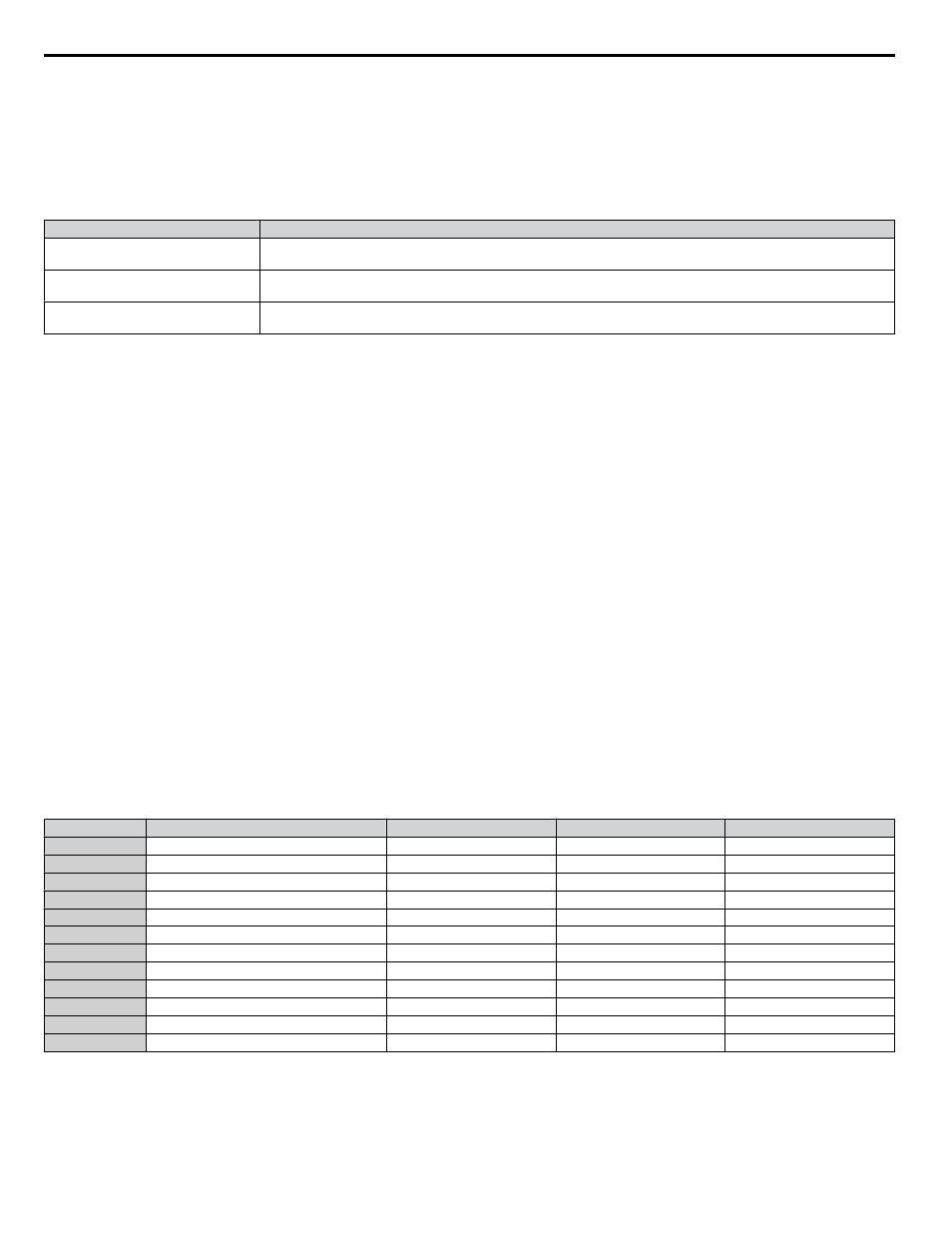Yaskawa iQpump Micro User Manual
Page 118

n
Multiplexing Stop History
Many irrigation-pumping skids consist of a PM pump (Pressure Maintenance) and typically two larger booster pumps to
maintain high flow peak demands. In many cases depending on the number of irrigation zones in combination with the type
of sprinkler heads used, the flow demand fluctuates and may not require the use of both larger booster pumps at the same time
until higher flow rates are required. The drive Controller "Run Stop" history ensures that both booster pumps alternate each
run cycle.
Table 4.15 P9-01, Lead Drive Selection, Detection Settings
Setting
Description
0
Next Available
Select next available drive on the network as the new lead drive
1
Lowest Runtime (default)
Select the iQpump Controller with the lowest runtime as the new lead drive
2
Stop History
Select the iQpump that had been stopped for the longest time.
Note:
The new lead drive selection also applies to Alternation (P9-03 > 0) and will use the Stop History list when finding the alternate.
Triplex Irrigation Booster System Example
When pressure is dropping, the PM Pump (if installed) will attempt to return the system pressure to the desired setpoint level.
If the PM Pump is not able to return the system to the setpoint pressure, typically due to a greater flow demand, the booster
pump #1 will be staged on.
The drive controller will speed up or slow down the pump as needed to maintain the system pressure. When flow decreases
and the pump system is no longer required to run, the system will go to sleep waiting for the pressure to drop. On the next run
cycle the PM pump will start up again, and instead of running booster pump #1, booster pump #2 is stages on, since booster
#1 ran during the last cycle.
This method ensures that during normal operation both booster pumps will operate evenly as lead or lag pumps each run cycle.
A triplex irrigation booster system has one PM Pump (pressure maintenance) and two larger booster pumps of the same
horsepower. The customer would like to ensure that the PM Pump is also the lead pump to recharge the system during low
flow usage, but during high demands the booster pumps alternate on each run cycle or if required will both run to support very
high flow demands.
• Jockey/PM Pump will also be lead to start.
• Jockey/PM Pump will stage booster pump 1 or 2 and stay running for 20 seconds and then shut off.
• Booster pump 1 will run system and if required, call for booster pump 2 or vice versa.
• On sleep mode, the lead drive for starting will swap back to Jockey/PM Pump.
• System setpoint 100 PSI.
• Pressure drop of 10 PSI will start the Jockey pump.
• All drives have individual transducers rated 200 PSI maximum, but if there is a transducer failure, switch to network.
Triplex Irrigation Booster System Related Parameters
Table 4.16 Related Parameters
Parameter No.
Parameter Name
PM Pump
Booster Pump 1
Booster Pump 2
H5-01
Drive Node Address
1
2
3
P1-01
Pump Mode
3
3
3
P1-03
Feedback Device Scaling
200 PSI
200 PSI
200 PSI
P1-04
Start / Draw Down Level
-10.0 PSI
-10.0 PSI
-10.0 PSI
P9-01
Lead Drive Selection
2
2
2
P9-02
Feedback Source
2
2
2
P9-07
Lag Fixed Speed Delay
20 s
5 s
5 s
P9-20
Allow Network Run
2
0
0
P9-21
Run Priority
7
8
8
P9-24
Lead Swap at Sleep
0 s
1 s
1 s
P9-25
Highest Node Address
3
3
3
U5-99
PID Setpoint Command
100 PSI
100 PSI
100 PSI
4.7 iQpump Presets and Functions
118
YASKAWA TOEP YAIQPM 03B YASKAWA AC Drive - iQpump Micro User Manual